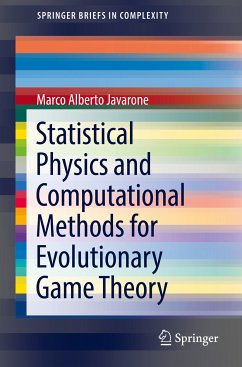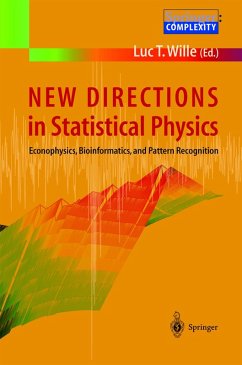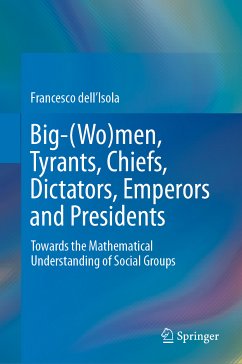
Proceedings of the 2020 Conference of The Computational Social Science Society of the Americas (eBook, PDF)

PAYBACK Punkte
60 °P sammeln!
This book is comprised of the latest research into CSS methods, uses, and results, as presented at the 2020 annual conference of the Computational Social Science Society of the Americas (CSSSA). Computational social science (CSS) is the science that investigates social and behavioral dynamics through social simulation, social network analysis, and social media analysis. The CSSSA is a professional society that aims to advance the field of computational social science in all areas, including basic and applied orientations, by holding conferences and workshops, promoting standards of scientific ...
This book is comprised of the latest research into CSS methods, uses, and results, as presented at the 2020 annual conference of the Computational Social Science Society of the Americas (CSSSA). Computational social science (CSS) is the science that investigates social and behavioral dynamics through social simulation, social network analysis, and social media analysis. The CSSSA is a professional society that aims to advance the field of computational social science in all areas, including basic and applied orientations, by holding conferences and workshops, promoting standards of scientific excellence in research and teaching, and publishing research findings and results.
The above-mentioned conference was held virtually, October 8 - 11, 2020. What follows is a diverse representation of new results and approaches to using the tools of CSS and agent-based modeling (ABM) in exploring complex phenomena across many different domains. Readers will therefore not only have the results of these specific projects upon which to build, along with a wealth of case-study examples that can serve as meaningful exemplars for new research projects and activities, they will also gain a greater appreciation for the broad scope of CSS.
Dieser Download kann aus rechtlichen Gründen nur mit Rechnungsadresse in A, B, BG, CY, CZ, D, DK, EW, E, FIN, F, GR, HR, H, IRL, I, LT, L, LR, M, NL, PL, P, R, S, SLO, SK ausgeliefert werden.












